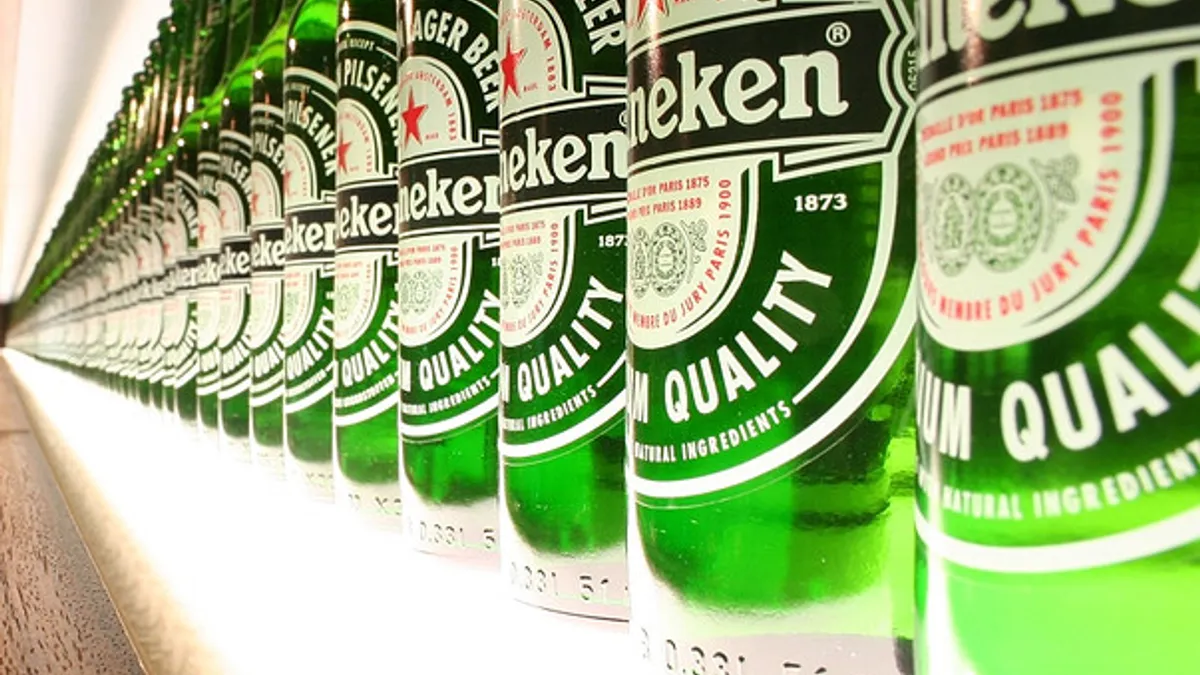Dive Brief:
- Heineken has pulled a new ad from TV and online channels after critics condemned it for being racist, CNN Money reported.
- In the ad, a bartender slides a bottle of Heineken Light past several black people before it lands with a paler-skinned woman with the tagline "Sometimes lighter is better." Hip-hop star Chance the Rapper called the ad "terribly racist" on Twitter and many others tweeted in agreement.
- Heineken USA spokesman Bjorn Trowery said the ad was meant to reference Heineken Light's qualities over other, higher-calorie beers but agreed that the brand "missed the mark," according to CNN Money. He said the feedback would be used to influence future campaigns.
Dive Insight:
Heineken's fumble underscores why marketers must keep cultural sensitivity top of mind when developing their creative strategies. The response to pull the ad in light of tweets from a celebrity and other users underpins the power that today's consumers wield on social media, often using platforms like Twitter to hold brands accountable and even drum up grassroots campaigns against media they take issue with through tools like hashtags. Millennials are especially vocal on social media when pointing out a brand's missteps, as 56% report they have specifically called out a company on social media, and the group overall is 40% more likely than other generations to do so, according to research from Sprout Social.
Such a whiff from the brewer is interesting, as Heineken recently won praise for its handling of social issues in a "Worlds Apart" ad that addressed gay rights, feminism and climate change, garnering millions of YouTube views and industry recognition. The beer brand released the video following Pepsi's disastrous Kendall Jenner ad, which similarly tried to address social justice movements, but had to be pulled from air following intense backlash.
Consumers continue to demand greater inclusion in advertising, with 75% of black millennials wanting to see brands better represent diversity in their ads, according to research from Google. But as marketers attempt to be more culturally and racially diverse in their campaigns, many miss the mark in ways that come across as alienating or tone deaf. Last year, Unilever's Dove brand pulled and apologized for an ad that showed a black woman removing a brown top to reveal a white woman underneath. Consumers perceived the message as washing away race. Dove also caught flack for a 2011 ad that was considered racially insensitive, where a woman became progressively whiter in a "before and after" comparison.














